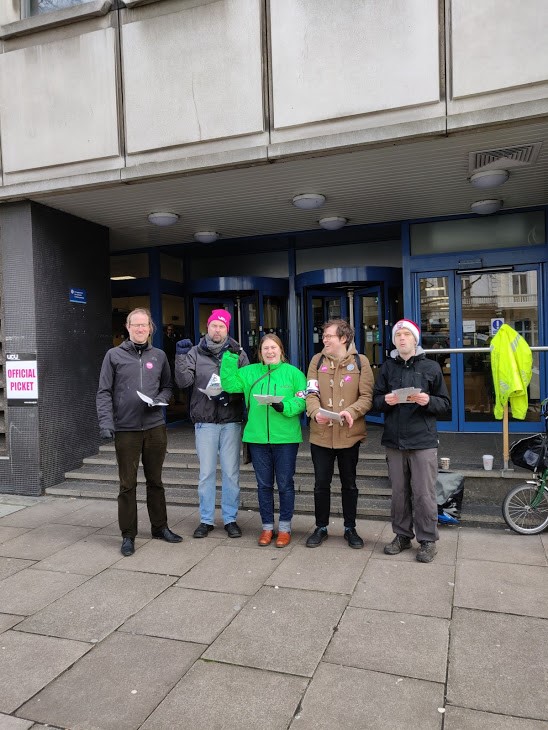University staff fight on wages, conditions and the future of education
by Brian Durrans
At the time of writing (20 March 2020), UK universities are in the news for two main reasons connected with the coronavirus pandemic. The Government’s belated decision to close schools has been welcomed by teachers but those in secondary schools and some university representatives have questioned how students’ GCSE and A-level grades will be allocated given exam cancellations. Interestingly, one Vice-Chancellor challenged this decision as a risk to social justice for many students, acknowledging that, compared with coursework assessment which may now be unavoidable, exams discriminate less against working class students.
Far more than this, however, universities have been in the headlines because of their scientific research-based input to debate and policy on how to deal with the current pandemic; and medical specialists at Imperial College London played a lead role in persuading Downing Street to ditch its fatuous “herd immunity” approach for a more robust line on social isolation and testing.
The pandemic doesn’t kill its victims just with the help of a decade’s austerity. The erosion of capacity in the NHS began earlier than the 2008 financial crash and even before the Private Finance Initiative (PFIs) of New Labour. Likewise, over the decades de-industrialisation and the shrinking and shackling of trade unions paved the way for the gig economy and unprecedented levels of inequality in wealth and health. The crisis reveals whose work matters most, and that we need not just a proper NHS but also proper social care integrated with it; and sustainable jobs for the future, which point us towards Socialism.
For all that our scientists are lauded as heroes in the battle against coronavirus, the university system that makes them what they are has itself been under systematic attack for many years on several fronts, principally a narrowing corporatisation of learning and research and cuts to jobs, security and incomes, and ever-increasing workloads. Academics and ancillary stuff who together run higher education under increasingly difficult circumstances have begun a serious fight-back both on wages and conditions and with a clear understanding that the very future of advanced learning hangs in the balance not only in more vocational fields like engineering, medicine, law and management but in the swathe of other disciplines on which the economy and the quality of all our lives also depend.
Following increasingly well-supported and militant campaigns in 2018 and 2019, the University and College Union (UCU) organised industrial action this year with strikes and other forms of non-co-operation on an unprecedented scale covering a range of issues including workload-related stress and ill health as well as equality, job security, pay and job-related pensions. Staff in 52 colleges and universities voted for actions on pensions and in 70 of them the focus was on wider work-related issues; altogether 74 different institutions were involved over a four-week period from 20 February to 13 March. On 15 March 2020, in view of the pandemic and pressure to close classes, picketing was suspended but the campaign continues. (1)
Those strikers on one of the several official pickets at Imperial College London (ICL) with whom I spoke on 3 March were good-humoured yet realistic about their prospects of winning concessions from intransigent employers. The dominant outlook was that their working lives had been deteriorating for so long that passivity is not an option. Long ago, these would have been among the “middle strata” who’d have identified with the capitalist status quo. They gave me a flyer advertising a lunchtime discussion on environmental policy, a hot topic at ICL. UCU members might not win this round, but they increasingly know which side they’re on.
(1) https://www.ucu.org.uk/heaction-institutions

UCU picket 3rd March 2020






